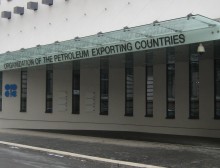Search Results
for Matt Piotrowski | @mattpiotrowski - The Fuse

MIT Study Shows Big Benefits of Autonomous Cars: No Traffic Lights and Congestion at Intersections
As vehicles communicate with each other through sensors, they can remain a safe distance from each other but they do not have to completely stop before slithering through an intersection.

Video: Jamie Webster of IHS on Saudi Output Strategy, Global Oil Markets and CERAWeek
The Saudi oil minister's comment that the Kingdom isn't planning to cut production was the biggest news to come out of CERAWeek this year. What are the implications for OPEC and global oil markets? Jamie Webster of IHS explains.

VIDEO: Susan Sakmar on CERAWeek and LNG Exports
With Cheniere's vessel heading to Brazil, LNG is now being exported from the Lower 48 States. What are the implications for the US and global gas markets? University of Houston Law Professor and LNG expert Susan Sakmar explains to The Fuse.

API: Fossil Fuels to Remain Critical Source of Supply for US Consumers
The head of the API discusses the importance of fossil fuels at the organization's 2016 State of American Energy.

Video: OPEC Meeting Results in a "Roll-Off."
Very low oil prices are making OPEC ministers quite concerned. But so far, with the composition of the membership in flux, there's been no change to current production policy.

Video: The Prospects for Kurdish Oil Sales
Kurdistan's oil sector remains open for business despite low prices, the dispute with Baghdad, and the ongoing fight against ISIS. Live reporting from Kurdistan-Iraq Oil & Gas Conference in London.




Subscribe